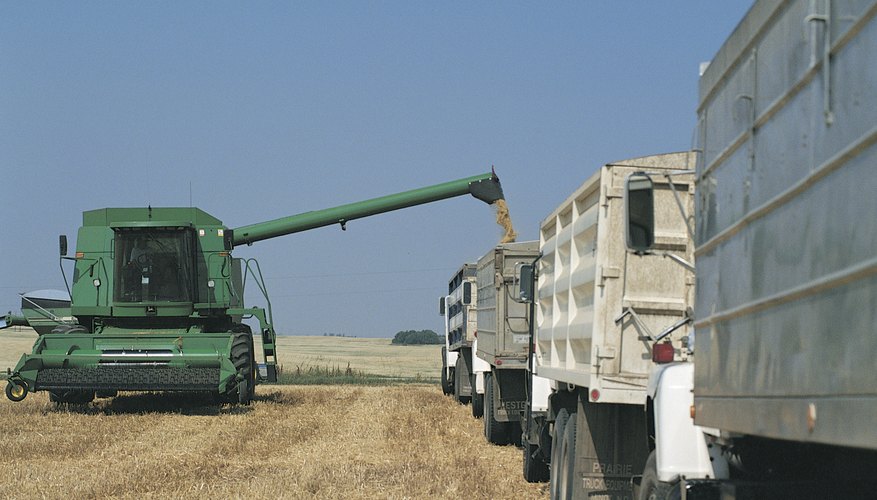
Special rules apply to farm trucks and other farm vehicles, making them different from vehicles used for commercial and other purposes. A farm truck registration plate can be obtained from the North Carolina Division of Motor Vehicles, and this costs less than that needed for a commercial truck. However, the rules governing the granting of farm truck plates are quite strict, and penalties are imposed for anyone misusing them. Many insurance companies will apply smaller premiums to vehicles registered for farming purposes.
Exemption and Rules
Farm vehicles which are not self-propelled, and which are designed to work mainly off the highway, are exempt from certification of title and registration. Trucks must be driven at no more than 35 miles per hour. The farmer should sign an affidavit obtainable from the North Carolina Division of Motor Vehicles to declare that he owns or manages at least 10 acres of farm land, and that the truck is to be used for agricultural purposes.
Driving
The truck should only be driven on the highway, when going to and from the suppliers of fertilizer or other product necessary for the farm, or when going to and from the market. It should be driven by a person with the correct license for the vehicle. It should be insured for the appropriate amount.
Other Stipulations
Farm trucks taking unprocessed cotton to the plant must not exceed 50 feet in length. Single vehicles having two or three axles should not exceed 40 feet in length. Trucks with a gross weight of at least 10,0001 pounds must display a federal safety inspection notice. Farm trucks must be used solely for growing and raising products on a farm, not for buying products for resale.
Writer Bio
Noreen Wainwright has been writing since 1997. Her work has appeared in "The Daily Telegraph," "The Guardian," "The Countryman" and "The Lady." She has a Bachelor of Arts in social sciences from Liverpool Polytechnic and a postgraduate law degree from Staffordshire University.



